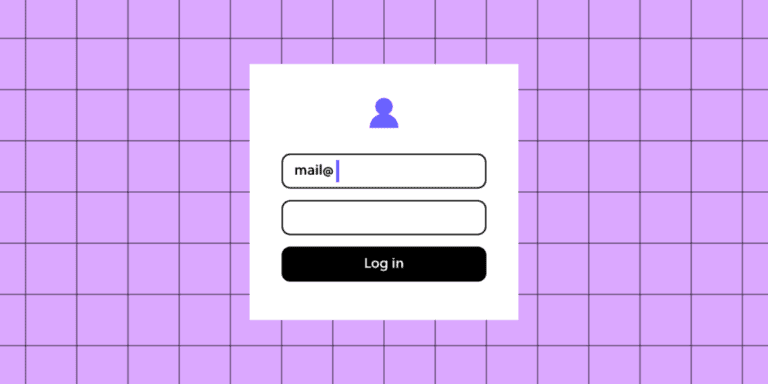The iQueue surgery scheduling platform optimizes surgical scheduling, improves OR utilization, and enhances patient outcomes through AI-driven insights and data integration.
In the fast-paced world of healthcare, optimizing surgical scheduling is critical to ensure efficiency, reduce patient wait times, and maximize the utilization of operating rooms (ORs). iQueue Surgery Scheduling, developed by LeanTaaS, is a cutting-edge platform designed to address these challenges. With its AI-powered algorithms and data-driven insights, iQueue helps hospitals and surgical centers streamline their scheduling processes, leading to improved outcomes for both patients and healthcare providers.
Table of Contents
What is iQueue Surgery Scheduling?
iQueue Surgery Scheduling is a cloud-based software solution that leverages advanced analytics and machine learning to optimize the scheduling of surgeries. It is designed to meet the unique needs of hospitals and surgical centers by providing tools to better manage OR availability, surgeon schedules, and patient flow. The platform integrates seamlessly with existing Electronic Health Record (EHR) systems, allowing for real-time data synchronization and efficient communication between different departments.
Key Features of iQueue Surgery Scheduling
- AI-Driven Scheduling: The platform uses machine learning algorithms to predict the optimal time slots for surgeries based on historical data, surgeon availability, and patient needs. This reduces the likelihood of scheduling conflicts and ensures that ORs are used efficiently.
- Real-Time Data Integration: iQueue integrates with EHR systems to provide real-time updates on patient status, OR availability, and surgical team schedules. This ensures that all stakeholders have access to the most current information, reducing delays and improving communication.
- Predictive Analytics: The software provides predictive analytics to anticipate potential scheduling issues, such as delays or cancellations, allowing for proactive adjustments. This helps in reducing downtime and improving the overall throughput of surgeries.
- User-Friendly Interface: The platform is designed with a user-friendly interface that allows schedulers to easily navigate and manage surgical schedules. The drag-and-drop functionality, customizable views, and intuitive design make it easy to use for staff at all levels.
- Scalability: iQueue is scalable and can be customized to meet the needs of small surgical centers as well as large hospital networks. Whether managing a single OR or multiple facilities, iQueue adapts to the size and complexity of the organization.
Benefits of Using iQueue Surgery Scheduling
- Improved OR Utilization: By optimizing the scheduling process, iQueue helps hospitals make better use of their ORs. This leads to higher throughput, reduced idle time, and ultimately, increased revenue.
- Enhanced Patient Experience: iQueue reduces patient wait times by ensuring that surgeries are scheduled efficiently and without unnecessary delays. This enhances patient satisfaction and improves overall care quality.
- Reduced Cancellations and Delays: With predictive analytics and real-time data, iQueue helps identify and address potential issues before they lead to cancellations or delays. This proactive approach minimizes disruptions and ensures that surgeries proceed as planned.
- Cost Savings: By improving OR utilization and reducing delays, iQueue helps hospitals save on operational costs. The platform’s data-driven insights also enable better resource allocation, further contributing to cost efficiency.
- Streamlined Communication: iQueue facilitates better communication between surgeons, anesthesiologists, nurses, and administrative staff by providing a centralized platform for scheduling and updates. This reduces the likelihood of miscommunication and ensures that everyone is on the same page.
How iQueue Surgery Scheduling Works
The iQueue platform works by analyzing a variety of data points, including historical surgery data, surgeon preferences, patient information, and OR availability. It then uses this data to create optimized schedules that balance the needs of the hospital with the preferences of surgeons and patients. The process is as follows:
- Data Collection: iQueue collects data from the hospital’s EHR and other relevant systems, ensuring that it has up-to-date information on patient status, surgeon availability, and OR conditions.
- Algorithmic Processing: The platform’s AI algorithms analyze the collected data to identify patterns and predict the best scheduling options. This includes considering factors such as surgery duration, surgeon efficiency, and patient preparation time.
- Schedule Generation: iQueue generates a schedule that maximizes OR utilization while minimizing wait times and potential conflicts. The schedule is presented in an easy-to-understand format, with options for customization based on specific needs.
- Real-Time Adjustments: As conditions change (e.g., a surgery takes longer than expected), iQueue allows for real-time adjustments to the schedule. This flexibility helps ensure that the day’s operations continue smoothly, even in the face of unexpected challenges.
- Continuous Improvement: iQueue continually learns from the data it processes, refining its algorithms over time. This means that the platform becomes more effective the longer it is in use, leading to ongoing improvements in scheduling efficiency.
Implementing iQueue Surgery Scheduling in Your Facility
Implementing iQueue Surgery Scheduling involves several steps, but LeanTaaS provides comprehensive support throughout the process:
- Assessment: LeanTaaS works with your team to assess your current scheduling processes and identify areas for improvement.
- Customization: The platform is customized to fit the specific needs of your facility, including integration with your existing EHR system.
- Training: Staff are trained on how to use the platform effectively, ensuring a smooth transition and minimal disruption to operations.
- Ongoing Support: After implementation, LeanTaaS offers ongoing support to address any issues and help you get the most out of the platform.
Conclusion
iQueue Surgery Scheduling is a powerful tool that can transform how hospitals and surgical centers manage their ORs. With its AI-driven insights, real-time data integration, and user-friendly interface, iQueue not only improves scheduling efficiency but also enhances patient outcomes and boosts operational efficiency. If you’re looking to optimize your surgical scheduling processes, iQueue Surgery Scheduling is the solution you need.
FAQs
What makes iQueue different from traditional scheduling methods? iQueue uses AI and machine learning to predict the best scheduling options, while traditional methods often rely on manual input and less accurate forecasting.
Is iQueue Surgery Scheduling easy to integrate with existing systems? Yes, iQueue is designed to integrate seamlessly with your existing EHR systems, ensuring minimal disruption during implementation.
How does iQueue help reduce surgical delays? By providing real-time data and predictive analytics, iQueue identifies potential issues before they cause delays, allowing for proactive adjustments.
For more interesting articles, keep visiting our blog.











